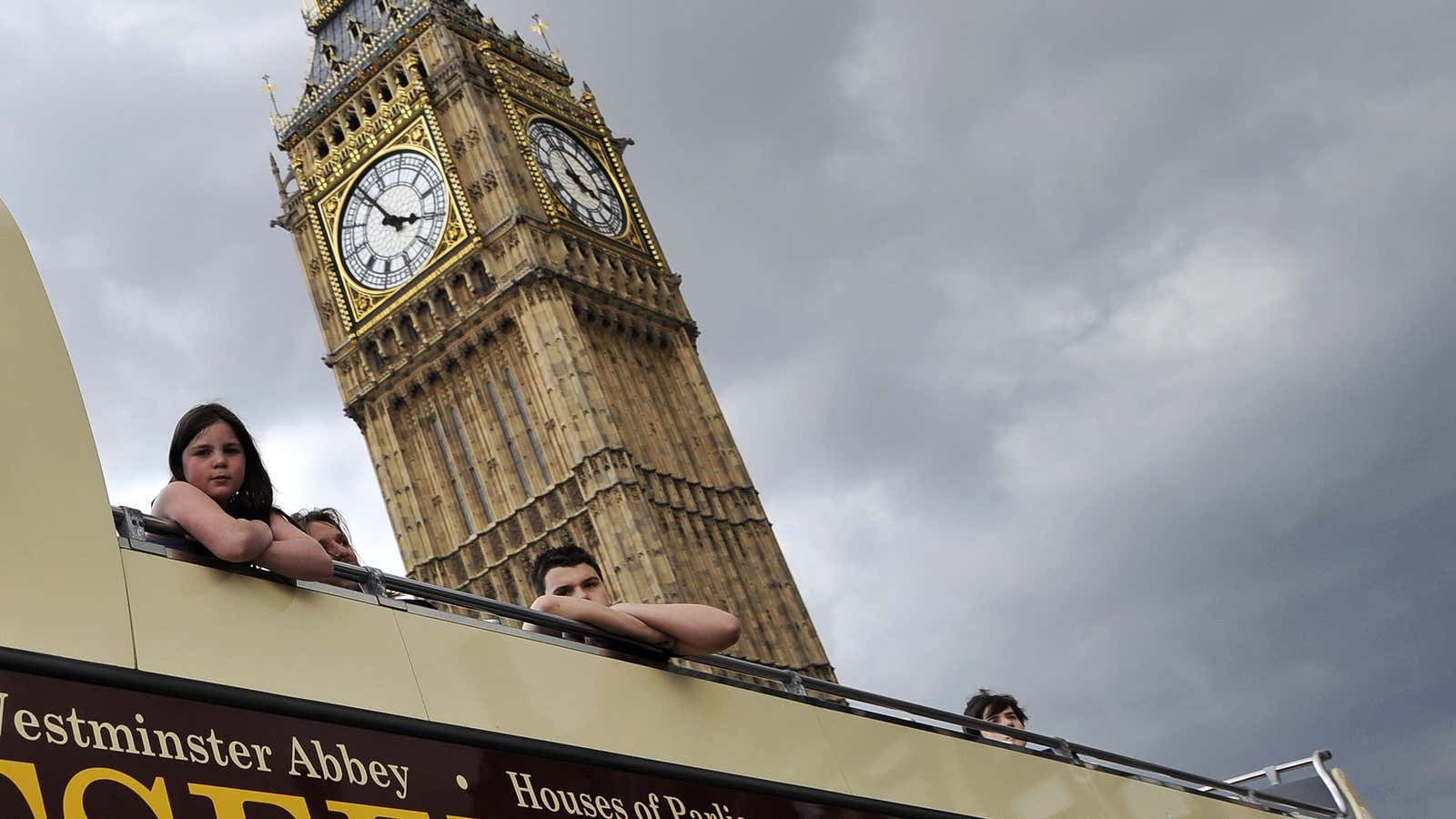Greg Geronemus saw a business opportunity in the fallout from Britons’ vote last week to leave the European Union.
The co-chief executive of US-based smarTours, which focuses on cost-conscious travelers, said he just decided to offer a package next year to the UK—the company’s first in the 20-or-so years it’s been going. ”This is 100% tied to Brexit,” Geronemus said.
The company offers tours in Africa, Asia, South America and Europe, but the UK has always been a “glaring omission,” he said. The company has considered starting trips to the UK before, such as after the financial crisis, but found it still too costly. But the pound’s recent tumble—the pound fell to a 31-year low against the dollar in the aftermath of the Brexit vote—has changed that.
Geronemus is not the only one to notice. There are other signs that Britain may soon see an influx of tourists; searches for trips to the UK rose 35% on the US site of online travel booking company Travelzoo after the vote, a spokeswoman told Quartz.
It is a scarce bit of sunshine for the tourism industry in the wake of the vote. Pessimism about Britain’s economic health and the weak pound have roiled shares of airlines, since Britons’ buying power abroad has been slashed, making it less attractive for them to travel internationally. Trillions have been lost from stock markets and the UK is forecast to go into recession as a result of its decision.
It would be a welcome shift for the UK. Hotel occupancy from the start of the year through May is down 1.2% from the year-earlier period, according to data from hotel-industry analytics firm STR. Revenue for each available room is nearly flat on the year, compared with a 4.9% year-over-year increase in the first five months of 2015.
The UK tourism market could also benefit from a shift in Britons’ travel habits (paywall) should they favor staycations instead of international trips—as their pounds now have much less spending power abroad.
